#house of basarab
Text

Mircea II, Vlad III and Radu III
Sons of Dragon
#dracula#how do i supposed to tag this#hellsing#alucard#hellsing ultimate#alucard hellsing#alucard is a middle child i know he cant handle it if integra sulk integra is a spoiled only child#hellsing should expand more about alucard’s background#but because hirano didnt so i have to do researches on the house of dracula and fill the gap myself#house of basarab#vlad dracula tepes#vlad the impaler#mircea III dracula#historical#vladcard#i read somewhere that vlad had big forehead no wonder vladcard had his bangs all covered up his forehead
264 notes
·
View notes
Photo
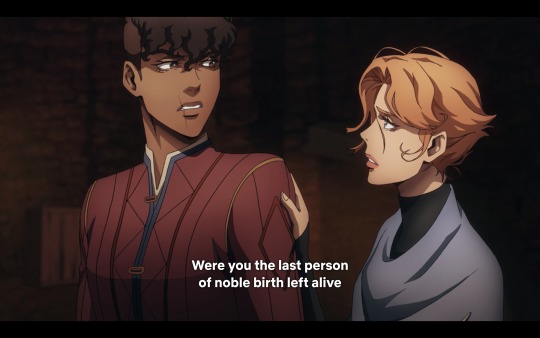
This is an interesting and really vague line, and it’s unfortunate Zamfir’s arc is probably the most rushed subplot in the series. (I mean, I didn’t really care for what Sumi and Taka had going on, but at least they got a brief flashback explaining their motives.)
So let’s dive into the historical context here:
Since it’s founding in 1310, Wallachia was ruled by the House of Basarab, a family that some historians believe may have migrated from Asia. Wallachia’s first ruler on record was Basarab the Great.
After the death of Mircea the Old in 1418, a direct descendant of Basarab the Great, the ruling family split into two factions: Mircea’s descendants through his sons known as the Drăculești and the descendants of his brother, Dan I, known as the Dănești. This split would become the defining feature of Wallachian politics for this time period. During the last years of Mircea’s reign, he named his only legitimate son Mihail as co-ruler to ease the transition of power after his death. Within three years of ruling on his own though, Mihail was overpowered by the Ottoman Empire and the boyar lords under him defected to his cousin Dan II and Wallachia broke into a civil war. Mihail was killed in the spring of 1420, after which several of his illegitimate half-brothers took up the Drăculești line’s bid for power, fighting the each other as much as Dănești faction. It’s like Game of Thrones but even more chaos and the bastards are 100% valid players in the eyes of the law and society.
Castlevania takes place in 1476, so in between this year and the year of Mihail I’s death, rule of Wallachia (the Voivodate) would change hands 24 times and see a total of 10 separate rulers, only one of whom would die of natural causes. (In comparison, England’s throne saw three different occupants in the same amount of time. Although, one of those three was a usurper and one died under mysterious circumstances of the ‘probably murder’ variety.) So Sypha coming out and guessing that Zamfir is the last of the nobles is thought-provoking in that the royal court was already a hostile place even without Dracula bearing down on the capital.
Zamfir’s psychosis may have deeper roots than what happened when Dracula attacked, and I really want to explore that further. ‘Last person of noble birth’ can have a few meanings. The Wallachian nobility were the boyar lords, whose power and influence was dependent on wealth and/or land. At court, there was the princely council who advised (or schemed against) the ruling prince, and there were also a few court positions that weren’t part of the council. More to the point, Wallachia’s society behaved the same way as most European nations did at the time: ‘You have no power for you are but a woman.’
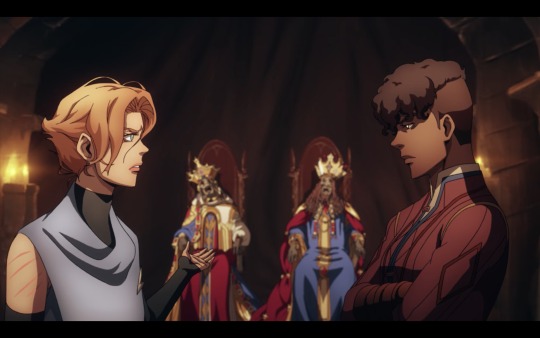
As for the mummified corpses in the Underground Court, in the interest of loose historical accuracy, the dead prince could only be Vlad III Dracula of House Drăculești. In November of 1476, Vlad III usurped the throne from Basarab III, who had held it since 1474 after killing his predecessor Radu III (Vlad III’s younger brother, actually.) In December of that year, Basarab III returned to Wallachia and took back the throne, killing Vlad III in the process. Basarab III would live another four years. In addition, the capital of Wallachia was moved from Târgovişte to Bucharest this same year. So intentional or not on the creators’ part, the show roughly matches up with the historical timeline. There’s also the fact that it’s not entirely clear exactly how Vlad III died and there is some speculation by historians that Bram Stoker’s Dracula and the historical Dracula only share the same name and the latter was not the actual inspiration for the former.
It’s a bit of a stretch to say Vlad III Dracula and the vampire Vlad Dracula Ţepeş were intended to be two separate people in the series, so I won’t go out there and make that claim. The mummified royals are probably just nameless artifacts for the plot and we are definitely in speculation, headcanon, string and thumbtacks territory now.
Still, the ‘last person of noble birth’ line does have me wondering what Zamfir’s connection to the court is aside from ‘leader of the Târgovişte resistance.’ Daughter of a courtier, daughter of a council lord, or daughter of the ruling prince himself?
#castlevania netlix#castlevania zamfir#sypha belnades#historical context#medieval history#Medieval Wallachia#medieval romania#medieval europe was terrible#wallachia#Historical post#castlevania post#Castlevania#targoviste
32 notes
·
View notes
Note
5, 10, 17, 31 for both Vlad and Trystan dear Lin! <33
My most beloved Mads! Thank you for sending these my way. It means the absolute world to me! 🥰️❤️️
5. What sort of succession system is it? Agnatic? Primogeniture? Gender-biased?
In Vlad's 15th-century Wallachia, the succession system is not fixed but rather functions as a loosely structured polity. Future voivodes are chosen from any male members of the royal family who are not disfigured or maimed noticeably. This type of succession is defined as os de domn (of voivode marrow), which means that any man from the royal family (brother, nephew, son, etc.), regardless of being born as a legitimate son or not, has the right to become the ruler of the land. At the same time, the voivode does not need to consider the order in which possible successors are born but instead chooses his heir based on skills and capabilities, hence why it is not uncommon for the heir to first become the associate ruler which allows the voivode to prepare his successor and teach him the craft of politics. This type of succession is, to a certain extent, favourable as it eliminates the stigma associated with illegitimate children because, regardless of whether they are born out of wedlock or not, all male members of the family are treated equally and have the same opportunities. However, it also creates an unstable political environment characterised by frequent violent power struggles among family members.
In Trystan's 21st-century Drakovia, the succession system is primogeniture, meaning that the firstborn legitimate child inherits the throne. Unlike in the past, this system is no longer biased based on gender, allowing daughters of the kings to also become rulers (this option was implemented through the Drakovian Pragmatic Sanction which allowed Queen Catalina to rule during the last two decades of the 1800s). This type of succession ensures the stability of the country, with the heir being prepared for their future role from childhood. However, it does discriminate against the illegitimate children of the king, which is why Juliana Georgescu eventually proposes the draft of the Drakovian Act for Heir Equity.
10. Is the dynasty old? Or new? How does this affect how they operate?
Vlad belongs to the House of Drăculești, which traces its origins back to Vlad’s father, Vlad II Dracul (Dragon). While the family is part of the House of Basarab, the Basarabs eventually split into two separate lines, with the other line being the House of Dănești. These two lines have been in constant competition for the throne since the late 14th century. The Basarabs are a ruling family of Cuman origin, and they established Wallachia as a state in the early 14th century under the leadership of Basarab I (hence the name of the royal house). At the time of Vlad’s first rule in 1448, the country (and the royal house) is still relatively young, being only 138 years old. The relative youth of the House of Basarab itself does not cause problems in the functioning of the state. However, the split of the royal house into two lines certainly contributes to the instability in the region.
Trystan belongs to the House of Tornović which first began to rule Drakovia in the 18th century. Prior to Drakovia becoming a Socialist republic in the 1940s, the royal family was renowned for being enlightened rulers who promoted education and art. However, due to the volatile and turbulent political landscape of the Balkans, the Tornovićs often had to govern with an iron fist, making them rather authoritarian, almost despotic. After the fall of the Communist regime, the descendants of the House of Tornović return from exile to a country that becomes instantly engulfed in a bloody civil war that ultimately leads to the restoration of the kingdom at a high cost. However, due to the volatile nature of regional politics and the transformation of Drakovian society, the country merely undergoes a different kind of dictatorship under the rule of King Maksim, Trystan’s father.
17. Does your OC dislike living in the public eye? Or do they believe it's part of the job?
Growing up in the family of the Great Pretender and later moving to the Royal Court in Târgovişte, Vlad is accustomed to being in the public eye. He sees it as a small price to pay for being a Drăculea, and it is an aspect of his life that he does not have a personal preference for but rather sees as a constant presence. He can manage it as long as he can find a way to maintain some privacy for his family and for an environment where he can simply be a regular person for a while. However, when he becomes a prisoner at the Hungarian court, he strongly dislikes being constantly observed by the public, primarily due to the constant humiliation that comes with it. He begins to prefer the solace of privacy, being surrounded only by family or using it for quiet contemplation.
Trystan not only enjoys living in the public eye, he thrives in it. Whether he is publicly praised as an enigmatic heir to the throne or closely followed as a scandalous rebel in exile, he relishes the attention at all times. His perspective on public life does not solely derive from being born into the most closely observed family in the kingdom, it also arises from his personality and his somewhat eccentric soul. However, this perspective shifts with age as he develops a greater appreciation for tranquil environments and a desire for privacy.
31. Your OC has been the target of some bad press. What do they do to straighten out the story?
It is a historical fact that Vlad's reputation has been tarnished by a series of pamphlets aimed at ruining his image, so much so that this negative perception of him persists to this day. During his imprisonment by Hungarian King Matthias Corvinus, Vlad had no opportunity to correct the narrative or defend himself against the slanderous accusations and, as a result, his bad reputation has continued to follow him without anyone giving him the chance to make his voice be heard. After his release and his third time becoming the voivode, Vlad is too disillusioned and bitter to even think about actively addressing his tarnished reputation. He only cares about being understood by his family and closest associates.
Trystan firmly believes in the motto that “any press is good press”, so he isn’t easily offended by negative publicity. He is accustomed to appearing on magazine covers due to his supposedly scandalous behaviour and enjoys being seen as a provocative rebel. However, if the bad press includes something too sensitive, he would go to great lengths to restore his reputation. For instance, there is a lingering cloud of suspicion surrounding his involvement in Juliana Georgescu’s death, and the desire to uncover the truth (and potentially clear his name) continues to haunt him for years. Eventually, we know that the Detective helps him uncover what truly happened on that fateful night.
3 notes
·
View notes
Text
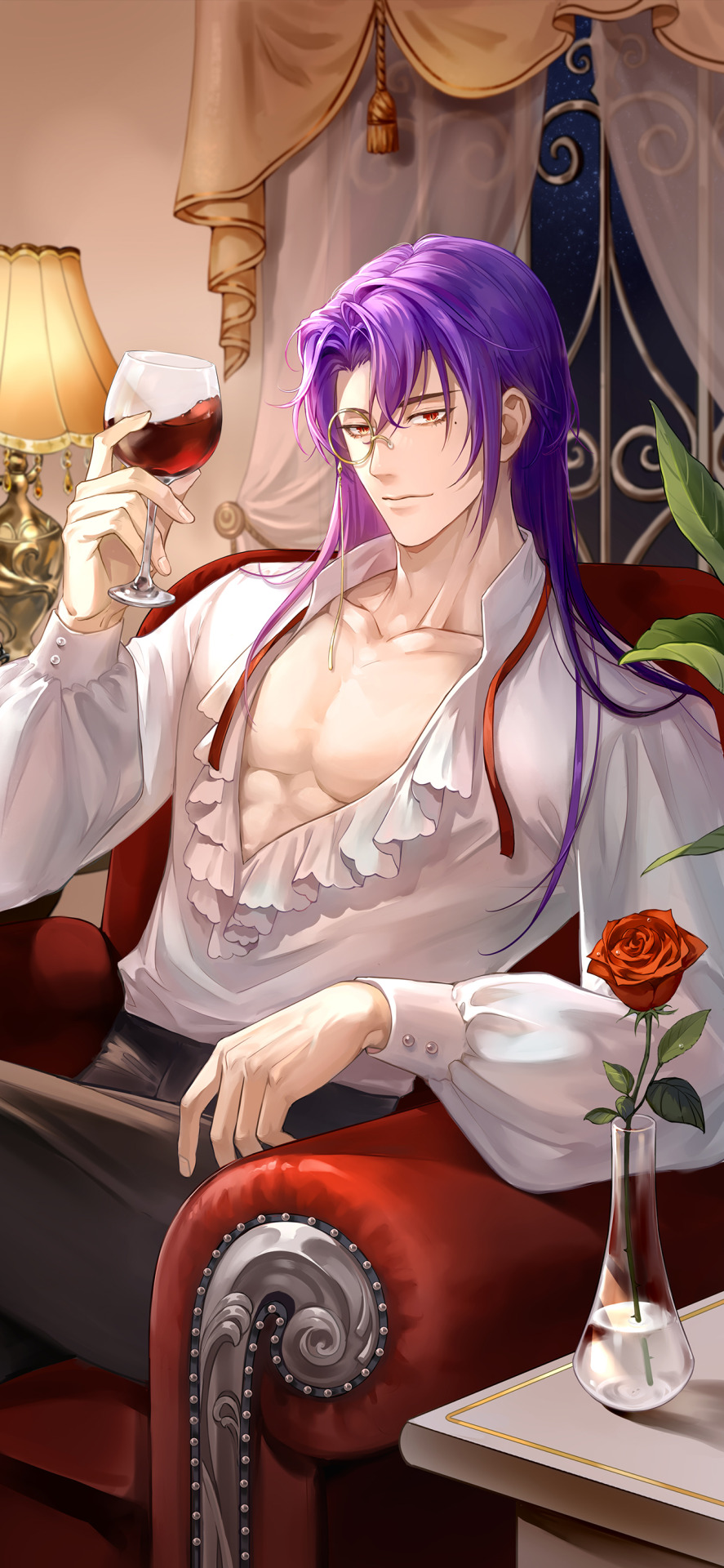
My name is Viktor Basarab, leader of house Fomalhaut and the vice president of the student council here at the College of Magic Studies. I'll be taking over this page. I heard some of you can't wait to see me. So here I am! Let's get to know each other, I can't wait to see where the journey takes us.
#MAGIC#College#Studies#Lovers#Friday#fridaymotivation#otome#otomegame#game#app#boys#love#japan#romance#lovestory#happy
22 notes
·
View notes
Text
Grant DaNasty from Castlevania is named for the Wallachian princely house of Dănești, one of the two main branches of the House of Basarab. Vlad II Dracul and the famous Vlad Dracula belonged to the other.
Which is great, but also: “Grant DaNasty” sounds like “consent to this kink.”
7 notes
·
View notes
Text
Vlad and (some of) his family
Vlad Dracula
Mircea the Elder (grandfather)
Vlad Dracul (father)
Stephen the Great (cousin)
Michael the Brave (great-great-great-nephew)


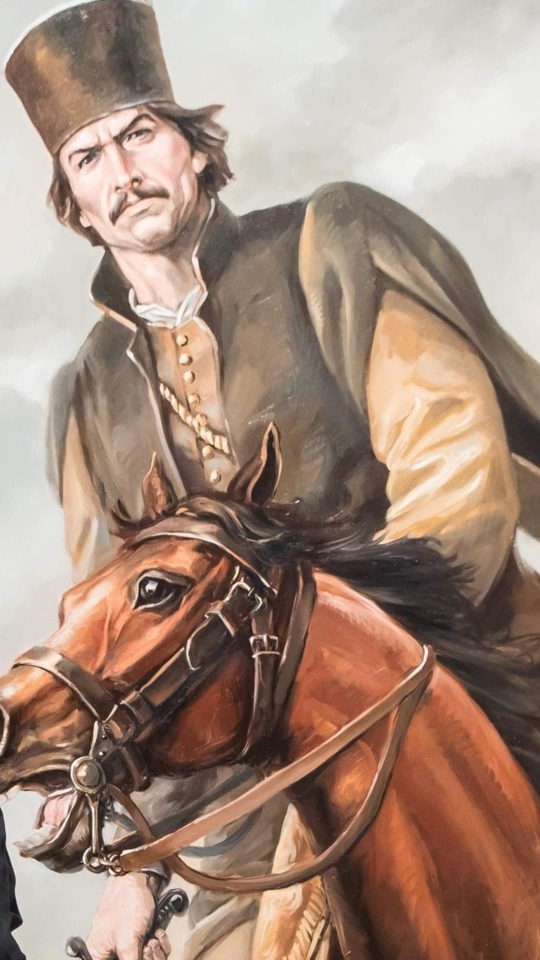

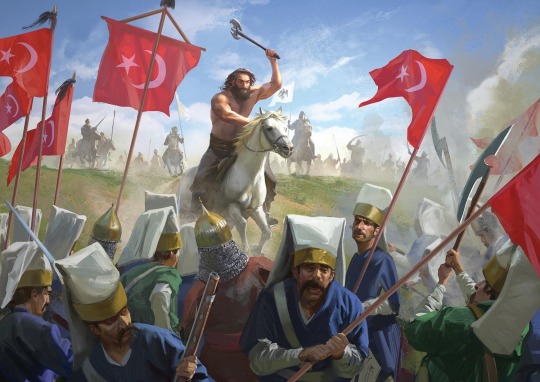
#vlad the impaler#vlad iii#vlad tepes#vlad draculea#vlad dracula#vlad dracula tepes#mircea the elder#Vlad dracul#Stephen the great#Stephen iii#Stephen iii of Moldavia#Stephen of Moldavia#Michael the Brave#Drăculești#draculesti#house Drăculești#house draculesti#house basarab#basarab#hellsing#alucard#hellsing ultimate#hellsing ova#hellsing manga#dracula#hellsing anime#hellsing gonzo#gonzo hellsing#hellsing alucard#alucard hellsing
53 notes
·
View notes
Text
Can any of my Chanceverse friends help me out?
I’m looking for all descriptions of Gunther and Radu. I know there’s a description of Gunther at the hotel in the second Dory book, but I can’t find my copy. Can anyone message or post it for me to reference? Any and all descriptions would be amazing. <3
Pretty please?
5 notes
·
View notes
Text
Vladbruarie day 11
ziua 11: pribeag prin Moldova (wonderer through Moldavia) || zapada/frig (snow/cold)
The cold chipped his lips and hardened his cheeks. The wind ruffled his tunic and the cold entered his bones. Vlad tugged at its cuffs in an attempt to bring himself some warmth. In vain. Forced to leave his home with just the clothes on him, the Basarab prince cursed the harsh weather under his breath.
Vlad wondered lost the mountain villages. His hair tangled like the dry twigs in birds' nests, his body covered in a crust of dust and dirt. The pride enabled in his mind by the noble state of his birth weeped for days. For, with not a money on him and his face broadely known, he had no means to earn a pay. Other than roaming from place to place and living off scrapes good people handed him.
The nights found him hugged in the ripped cloak – such a fine work when it was still carefully cared for by servants. Now a relict of former glory. Like its owner, Vlad thought bitterly.
Sometimes, he laid under the moonlight, surrounded by trees and lulled to sleep by the sound of running rivers. Other times, he had to stop on the road. When the legs gave in and his stomach growled. He'd sit outside an inn and wait for stranger's mercy. And he'd die a little inside every time.
Walking and walking on days with no end, Vlad passed the borders of his land. He noticed the change in patterns on villagers blouses. The lightly nasal speaking with its lazy vowles and pronounced consonants. And, of course, the rich monasteries, looming over the life of moldavian people.
A thought lingered but a moment: to search his cousin, seek his help. It was gone as it came. For how could he show to Ștefan's doorsteps looking like a begger? Vlad shook his head to himself and kept going as of before. Througu woods and forests, villages and boroughs, surviving harder and harder each passing winter day.
When the northern winds brought the first snow, Vlad still refused to ask his cousing for help. He stubbornly camped in a lower clearing, head resting on thick roots sprawling and twirling above ground, stealing as much heat from the fire he build. When he noticed the strange numbness in his limbs, he rushed to the nearest house – a shephard's home – and was lended a woolen coat.
However, it was not enough. And soon, the tips of his fingers blackened of cold and his eyelids fluttered shut more often than not. It was as such that Ștefan voievode came to find him.
》》》》》》》》》》》》》》》》》》》》》》》》》》》》》》》》》》》》》》》》》》》
Vlad opened his eyes to familiar paintings spreaded over a stone ceiling. A wave of panic awoke his mind and the man jumped from the bed in search of a threat and a weapon.
To his left, a mild snicker. "Peace, cousin. You are safe."
Vlad groaned. His shoulders slumped forward and he turned to face the oh so pios voievode. "Ștefan," he greeted. "I thought guests surprise their host with a visit, not the other way around."
"Ah, good to see the cold had not stripped you of your delightful spirit, Vlade. Welcome to my modest home. Do not shy from asking after anything you need." Ștefan took in Vlad's appearance, noticing not for the first time his ragged clothes and bruised skin. "Anything at all," he pointidely completed his statement.
When Ștefan found Vlad, the poor lord was covered in snow. His lips were blue or purple when deprived of light, his face red as the dying flames near him were supposed to be. One of the billagers saw him and reported to the living saint, who set off willimg to bring the ill-fated man to his home. Great was his astonishment upon discovering his near frozen to death cousin. Now, Vlad look much better. Though winter left its mark on him, at least he didn't loom half dead anymore.
"Serioulsy," Ștefan grew annoyed by the silence. "Just ask, cousin, and you shall recieve."
Grinding his teeth, seethed embarrased without measure, Vlad mumbled something about needing a shift of clothes.
Ștefan smirked pleased, but didn't move from his seat. Amused, he mused: "I'm sorry, Vlad, my dear, I must've miss it. What did you say?"
"You had me brought here to laugh at my expanse, then. Cousin?"
Ștefan rolled his eyes. "You need to relax more. Keep on like that and you'll have grey hair and wrinkles before me." He paused, walked to the door and opened it widely. "I brought you here because you were in my country, killing yourself slowly with yout pride and stubborness. And I could not have had it with good faith."
Vlad let one eyebrow slide upward as his features fell in an incredulous expression and enhanced his voice mockingly. "Of course, how dare I forgot, your holliness, oh, the kind one. Who wouldn't let a soul unsheltered, unconsoled, who seek salvation for all."
Ștefan would have answered if not right then a short woman tailed by two younger maidens rushed in. The woman carried on her arms a pair of pants, a tunic and a wool cape. One of the maiden behind brought a pair of boots and woolen socks, the other, soap and buckets of steeming water.
They folded the clothes on the bed, prepared the bath and left. An hour and a half later, Vlad felt like a new man. Clean, dressed and warm, now all he wanted more could only be a cup of tea and food.
"You're farring better, I see," Ștefan said from the same spot Vlad left him when he went to bath.
"And you're a better sain than voievode if you waited for me here instead of tending to your country."
"My country is well, dear cousin. And it can excuse one day of mine as I take care of my family. How do the clothes fit you?"
"Fine."
"Really?" Ștefan sat up and walked towards Vlad. "I would have said they look rather tight on you. But worry not, it shall be quickly fixed and you'll be ready to attend the feast in your honor."
And before Vlad could even think of protesting, the same three women as before rushed inside. This time, the younger ones carried a basket of clews, each with a needle stuck inside. The older woman drew a thread and shoved it in Vlad's* mouth before spitting on her fingers, rolling the end of clew between them and passing it through the needle.
The woman then proceeded to peel and sew, as Vlad was silenced by the thread between his lips, much to Ștefan's amusement. When the ordeal was finally over, the two men left for dinner, poking fun at each other to hide the joy of seeing each other again.
@vladbruarie
*for non romanian readers, if any: there's this belief around here that if someone sews something while you wear it, it will bring death closer to you and/or narrow your mind, hence the need of having a thread in your mouth on the duration of the sewing )
#vlandom#vlad țepeș#vlad the impaler#vlad tepes#vladbruarie#day 11#ziua 11#prompts#prompturi#mda fu putin mai putin zapada/frig si pribegit si mai mult 'cand iti vin rudele-n vizita' content i guess#da' nu-i rau eh?#romanisme
13 notes
·
View notes
Text
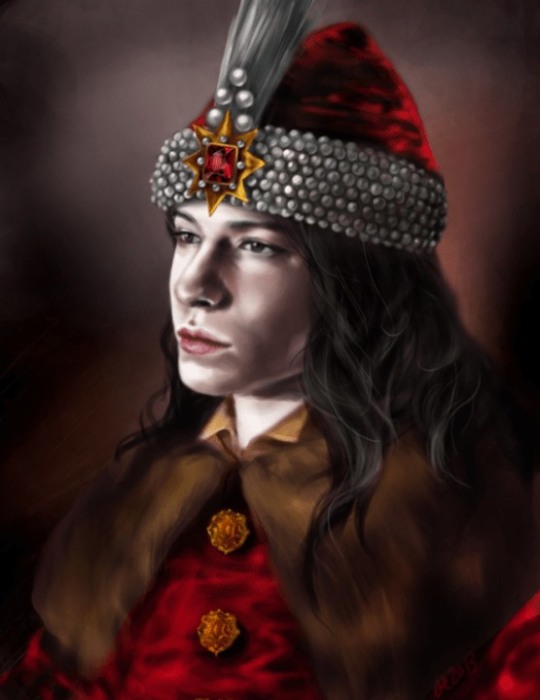
Life of Dracula from age 7 to 14 - Part 2
By Lyzhina Svetlana Sergeevna (Лыжина Светлана Сергеевна)
Original in Russian: http://samlib.ru/l/lyzhina_s_s/dracula_7_14_2.shtml
Annotation:
A continuation of the previous article. Here details Dracula's life after 11 years and primarily the events in the family - the birth of two new brothers, the death of his mother and the appearance of his stepmother, the sending of Dracula to Turkey.
In the last article it was mentioned that Dracula's life changed abruptly when he was about 7 years old. The family moved from the house in Sighisoara to the palace in Targoviste, and Dracula and his brother began to be intensively taught various sciences.
However, at this time not only Dracula's place of residence and the way of life itself changed - the composition of the family changed: first, Dracula's mother died, and her place was taken by her stepmother; and second, 2 new brothers appeared.
New brothers and stepmother
It was in Targoviste that Dracula had a brother, with whom he later had to go to Turkey - the same Radu.
In some biographies you can read that Radu was born back in Sighisoara, but about Sighisoara it is a mistake. Radu was not born earlier than August 1437, which is confirmed by documents.
The fact is that Dracula's father was in the habit of listing his sons by name in those charters that were donations.
There is a charter of 23 August 1437, which lists only two sons - Dracula's older brother and Dracula himself. But the charter of August 2, 1439 listed three sons - the same plus Radu. This gives historians a reason to say that Radu was born between August of 1437 and August of 1439.
No one can say for sure who Radu's mother was. However, there is indirect confirmation that it is the same woman (Princess Vasilika), who gave birth to Dracula and his older brother. This confirmation is contained in a charter of August 7, 1445, where Dracula's elder brother, Dracula himself and Radu are named as "first-born" sons.
Nevertheless, the word "first-born" can be interpreted differently - either all three sons were born of the first wife, or all three sons are full heirs to the throne. Unfortunately, Dracula's father was not in the habit of indicating in the charters, from whom this or that son was born, so now we have gaps in the genealogies.
The only certainty is that by 1445 Dracula's mother had already died, and his father married a woman named Colzuna, who came from a Romanian market town located on the Danube and called Braila.
Apparently Colzuna was much less noble than Dracula's mother. Dracula's mother was the daughter of a Moldavian prince, while Colzuna was at best the daughter of a boyar or even the daughter of a merchant.
Colzuna is known mainly because she caused Dracula to have another younger brother, later nicknamed "The Monk".
Initially this brother was a monk, but then he was tonsured and began to reign, but it happened after the death of Dracula, and in 1445 Monk was a very young child, if he was born at all.
In the charter of August 7, 1445 this Monk is not mentioned, but it is possible that he is not mentioned precisely because his father did not consider him a "first-born", i.e. heir to the throne, and decided to give him to God, i.e. to the monastery.
In general, there is more speculation than fact, but there is nothing to be done about it.
Paternal Wars
When talking about Dracula's life from the age of 7 to 14, it is necessary to mention another important event that took place in this period - from about the age of 13 Dracula began to attend the Boyars' Council. Dracula was not old enough to fully participate in the meetings, so he was supposed to just sit near his father's throne and listen to what others were saying.
About a year before that, the council began to invite Dracula's elder brother (also as an observer), so most probably from 1442 the brothers were present at the council together, and this very presence replaced the science of "politics", which according to the Byzantine system of education was supposed to be mastered
after the age of 17.
Listening to other people's conversations, Dracula had to finally figure out how his father builds relationships with his neighbors, and these relationships are very confused.
Back in 1431, Emperor Sigismund of Luxembourg, admitting Dracula's father to the Order of the Dragon, entrusted the new member of the Order an honorary duty to guard the southern border of the Kingdom of Hungary, ie Transylvania, which (recall) is at that time the Hungarian territory.
It was not just an obligation, but a condition of support for the claim to the Romanian throne. Of course, no one expected Father Dracula to ride along the border like a border guard with a small band of loyal servants. Dracula's father was expected to keep the Turks out of Transylvania by making his territory (the Duchy of Romania) something of a human shield.
Dracula's father accepted this condition, but soon after ascending the throne he went to the court of the Turkish sultan, where he confirmed the obligations that the former Romanian prince had to Turkey. Essentially, there were two obligations: 1) to pay tribute, and 2) to participate in Turkish campaigns.
The only problem was that the Turks were very often at war with the Hungarians, so Dracula's father willy-nilly assumed mutually exclusive obligations: on the one hand he was supposed to defend the Hungarian border, and on the other hand he was supposed to attack the same border with the Turkish army.
It would be very funny if it were not so sad, and the saddest thing about this situation is that Father Dracula had no choice. Not to go to Turkey would automatically mean declaring war on Turkey, and war at the beginning of his reign would mean the end of his reign for Father Dracula.
That is why a year and a half after ascending the throne, in the spring of 1438, Dracula's father came to Transylvania with the Turkish army, and when the Transylvanian inhabitants turned to him for protection, he replied something like, "Oh, you better not resist, or else it will be even worse.
Naturally, the Hungarians were not pleased with such behavior of father Dracula, so in order to placate the Hungarian neighbors, in the spring of 1442, together with the magnate Janos Hunyadi, who was the de facto ruler of Hungary, he destroyed 10,000 Turks in Transylvania. This, however, was not enough for Janosz, and he demanded that Dracula's father participate in a great campaign against the Turks, an idea that Janosz had been hatching for several years.
Dracula's father refused. The destruction of 10,000 Turks in Transylvania could somehow be concealed, but to participate in a campaign when one had to enter Turkish territory would be an open challenge to the Sultan.
Janos Hunyadi was very offended by this refusal. He was so offended that he decided to put another prince, a certain Basarab, on the Romanian throne. Then Dracula's father turned to the Sultan for help...
... And here we come to a new interesting episode in the life of Dracula himself, who was a teenager at the time.
Period of Freedom
In the summer of 1442 Dracula's father went to Turkey to negotiate with the sultan and was stuck there for 8 months. An obscure Basarab sat on the throne in Targoviste, and Dracula and his brothers were hiding somewhere at the time.
Perhaps one of the boyars loyal to Dracula's father had hidden them away - that we do not know - but it is unlikely that the boyar benefactor or anyone cared about the further education of Dracula and his older brother. There were enough problems as it was!
It turns out that control over the brothers dramatically weakened, and just at this time (according to some historians) Dracula was experiencing the most reckless years of his maturation - he had already reached the age of 13. Oh, how coincidental!
Of course, if Dracula was born in 1431, then nothing particularly remarkable could happen. What can you do at the age of 11! However, if Dracula was born in 1429 or 1430, the situation is much more interesting.
From the summer of 1442 to the spring of 1443, the teenager was
unattended by his father and educators, so he probably took advantage of the situation to learn things that wise mentors do not teach. The only person who could have slowed Dracula down was his older brother, but he was the same teenager, only 1-2 years older... Further commentary is superfluous.
Anyway, in the spring of 1443, Dracula's father returned from Turkey with the Turkish army, deposed Basarab from the throne and again engaged in the education of his older teenage sons, whose life went back to its old ways with all its austerities.
Hostage in Turkey
Contrary to popular belief, Dracula and his younger brother Radu were not sent to Turkey immediately after their father regained power. They lived in Targoviste for about a year, and did not go to the sultan until the summer of 1444.
The Sultan was not concerned about the hostages at that time. He was preoccupied with military affairs, because on July 22, 1443 Janos Hunyadi began a crusade against the Turks, which had long been planned, and fought very successfully - the crusaders gained one victory after another and advanced very far into the Turkish territory. The only thing that could stop the crusaders' advance was the winter cold.
The campaign of Janos Hunyadi was remembered in history as the Long Campaign and lasted till January 1444. Serbs, Poles, Czechs as well as German and French knights took part in the campaign. Dracula's father did not participate in the campaign with his army, as he was still at odds with Janos.
In the spring of 1444, negotiations for an armistice between Janos Hunyadi and the sultan began. Dracula's father joined the negotiations, which resulted in a formal reconciliation between Romanians and Hungarians, with Janos agreeing that Romania could remain under Turkish influence.
On June 12, 1444 negotiations were completed. The documents record the Sultan's demands to Dracula's father - "he must send us a pledge". By "bail" it was meant that Dracula and his brother Radu, who were about 14 and 6 years old respectively at the time, should come to the Turkish court.
Dracula's father took his sons to Turkey no later than the end of July 1444, and what happened next is told in another article.
#vlad iii#vlad tepes#vlad dracula tepes#vlad the impaler#the life of vlad the impaler early ages#history
19 notes
·
View notes
Note
This sounds so random but do you have book/manga recs? 👀
Oh my sweet Anon, book reccing is essentially a part of my job description lol.
Before we begin, though, I should let you know my tastes skew to shoujo manga and in books to romance (esp regency) and fantasy.
Anyways...

Manga:
My Top 2 fav manga of all time are Yoshiki Nakamura’s Tokyo Crazy Paradise (complete) and Skip Beat! (still on-going).
Nakamura is amazing at writing unconventional shoujo with quirky and fantastic female leads. TCP is centered in the world of yakuza, and SB is a slow-burn romance taking place in the entertainment industry.
Other manga I’ve enjoyed in no particular order:
Hanakimi i.e. Hanazakari no kimitachi e (complete)
NANA (Incomplete, hiatus)
Claymore (complete)
Bakuman (complete, and a manga about making manga? Love the meta)
Otoyomegatari (on-going)
Ballroom e youkoso (on-going)
Koe no katachi / A Silent Voice (complete)
and of course, Bleach (complete although there was no epilogue)
Books:
If you like classics, try
Persuasion by Jane Austen (”I am half agony, half hope”??? *swoon*)
The Blue Castle by L. M. Montgomery
The Handmaid’s Tale by Margaret Atwood (The best book I read that year)
If you like beautiful prose, try
The Memory of Water by Emmi Itäranta (I read this in Finnish personally but in that at least the prose was very pretty and I know the author wrote the English version herself and didn’t use a translator)
The Night Circus by Erin Morgenstern
Circe by Madeline Miller
If you like mystery, try
The In Death / Eve Dallas series by J. D. Robb aka Nora Roberts (if you’re ok with a 50+ book series that’s still on-going... There is something about the world and the characters that I find really compelling, and I’ve already re-read almost the entire series once, some specific books in it more than once)
The Cormoran Strike mysteries by She-who-shall-not-be-named (on-going. I know everyone and their uncle hates these books but I enjoy them.)
The Still House Lake series by Rachel Caine (on-going. Really, really different premise with a badass heroine, seriously recommend.)
If you like contemporary romance, try
The Hating Game by Sally Thorne
The Beach Read by Emily Henry
The Flat Share by Beth O’Leary
If you like regency romance, try
The Lord of Scoundrels by Loretta Chase (kick started my still on-going regency romance phase)
The Survivor’s Club series by Mary Balogh (complete)
When a Scot Ties the Knot by Tessa Dare (hilarious premise is hilarious)
If you like traditional fantasy, try
The Belagariad and The Malloreon by David Eddings (my favourite series growing up. I used to periodically re-read these every few years.)
The Farseer Trilogy by Robin Hobb
The Priory of Orange Tree by Samantha Shannon
If you like urban fantasy, try
The Mercy Thompson series by Patricia Briggs (on-going)
The Dorina Basarab series by Karen Chance (on-going, set in the same world as her other series)
The Kate Daniels series by Ilona Andrews (COMPLETE. Go and read, seriously, Ilona Andrews is one of my favourite writers!)
Misc book recs:
The Hidden Legacy series by Ilona Andrews
The Vorkosigan saga by Lois McMaster-Bujold
Battle Royale by Koushun Takami
Defy or Defend by Gail Carriger
The Bonesetter’s Daughter by Amy Tan
Eleanor Oliphant is Completely Fine by Gail Honeyman
Howl’s Moving Castle by Dianne Wynne Jones
30 notes
·
View notes
Text
Vlad III Dracula (1428/1431-1476/1477) AKA Vlad the Impaler. Voivode of Wallachia and real life inspiration for the modern popular conception of the vampire.
Some historical figures are steeped in more mythology and it can be hard to separate fact from fiction. This could well be true of one especially seen to be viewed as the inspiration for one of the most popular monster figures of contemporary culture. Let’s look in more detail at what we know of the real life, Dracula, Vlad III, Voivode of Wallachia...
-Vlad was born between the years 1428-1431 in what is the modern nation of Romania. At the time Romania was divided among different provinces, Transylvania in the north, then part of the Kingdom of Hungary. Moldavia in the east, a part of modern Romania and Moldovia and Wallachia in the south just north of the Danube river border with Bulgaria.
-He was born in the town of Sighisoara in Transylvania, the town was largely a merchant town controlled by Transylvanian Saxons (Germans) burghers and located in the Kingdom of Hungary. Transylvania was populated by Hungarians, German Saxons and Romanians (Vlachs/Wallachians).
-Vlad was an ethnic Romanian with roots in the nobility of Wallachia & Moldavia. His father was originally from the House of Basarab, but their branch became known as Draculesti. Vlad’s father was Vlad II of Wallachia, also known as Vlad Dracul, due to his membership in a Christian military order sanctioned by the Catholic Church, the Order of the Dragon. Their mission was to prevent the spread of Islam into Europe, namely from the threat of the Turkish Ottoman Empire that had conquered much of the Balkans in Southeastern Europe by then.
-The sobriquet Dracul was Medieval Romanian for “dragon” and Dracula as Vlad III would be called or Vlad Dracula meant “son of the dragon” as relates to his father. In modern Romanian, Dracul means the “devil”.
-Vlad’s mother is unknown, Vlad II’s first was unknown but some historians now believe his mother to have been Eupraxia of Moldavia, a relative of Alexander I of Moldavia.
-Vlad II Dracul would serve as voivode of Wallachia on more than one occasion, due to his family’s noble status. The term voivode was used mostly in Southeastern Europe, taken from the Slavic languages to mean roughly warlord, or later as prince. It mostly used in Bulgaria, Serbia, Bosnia & Croatia, Poland, Ukraine & Russia as well as Romania and Hungary.
-In 1436 his father came to power as voivode of Wallachia in the south of Romania following the death of his half-brother Alexander I Aldea. At the time, Wallachia found itself caught in a power struggle between rival factions and interests internally as well as in the wider context of the rival ambitions of Moldavia, Hungary and the Ottomans. Nominally, the voivode of Wallachia needed the blessing of the Hungarian King, Sigismund of Luxembourg, later Holy Roman Emperor or the Ottoman Sultan.
-Vlad II was made a member of the Order of the Dragon by Sigismund and given his blessing on the grounds, he protect Roman Catholicism, despite himself being a member of the Eastern Orthodox Church.
-Vlad was supported by the Hungarians whereas his brother had paid homage to the Ottoman Sultan. However, in 1437 Sigismund died, followed by rebellion in Transylvania which weakened the Hungarian position. In order to protect his own precarious position on the throne, he now chose to deal with the Ottomans and traveled to the then Ottoman capital in Adrianople, modern Edirne, Turkey. In return for Ottoman patronage he agreed to annual monetary tribute and had to serve on military campaigns in support of the Turks. Becoming their vassal. The Sultan at the time was Murad II.
-Vlad II supported the invasion of Hungarian Transylvania serving as Murad’s guide and aided the Turks in capturing 30,000 slaves for them. However, he also sought to placate the new Hungarian king, Albert of the House of Hapsburg by releasing some prisoners taken. He hoped to maintain a balance between patrons, leaving both the king & sultan to be wary of his intentions.
-Albert died in 1439 and was replaced by the young King of Poland Wladyslaw III, now King of Hungary as well. He appointed John Hunyadi, a Hungarian as Voivode of Transylvania in 1441. Hunyadi asked Vlad join him on a renewed Crusade against the Turks. He would meet Vlad in the Wallachian capital of Targoviste.
-Vlad II was accused of betraying Turks by their governor of Bulgaria following a Hungarian victory in 1442. Murad ordered Vlad to Adrianople to prove his loyalty. He named his eldest son, Mircea to serve in his stead, possibly suspecting danger. He was indeed arrested by the Ottomans and held prisoner for a time.
-The Turks tried to invade and annex Wallachia proper in 1442 but were defeated again by the Hungarians under Hunyadi who placed Basarab, Vlad’s cousin the new voivode.
-The Turks realized working with Vlad once again, maybe in their interest. In order to secure his throne once more, he made a new pledge to the Ottomans, to supply an annual blood tribute of 500 Wallachian boys to serve as janissaries in the Ottoman army (Christian boys forcibly converted to Islam and trained to be personal guard of the sultan). He also had to leave two of his own sons as hostages in Adrianople for training in Turkish culture and the ways of Islam. These two sons were Vlad (Dracula) & Radu.
-Vlad II was back to power in Wallachia in summer 1443 under unknown circumstances. During the subsequent war between the Hungary and the Ottomans he was to remain neutral. His sons were to be released if a peace deal with Hungary was signed. However, the papal legate to Hungary prevented its signing and encouraged the war to continue with the disastrous Battle of Varna (1444) fought in Bulgaria which resulted in the Turks defeating a Christian coalition of several nations, Wladyslaw III was himself killed while charging the Ottoman sultan’s position, nearly succeeding only to be stopped and saved by his bodyguards.
-The war between the Crusaders & Turks raged on over the next couple of years and gradually Vlad came out of his neutrality to fight against the Turks, meanwhile he may have believed his sons were murdered during their hostage stay in Turkey.
-In fact Murad had not killed Vlad’s sons, instead they were given an education in all matters, including Turkish warfare, military structure, governance, language, history and Turkish and greater Islamic culture. Vlad Dracula was reported to have been far more resistant to the Turks attempts to earn his favor than his brother Radu who is believed to have become a potential lover of Murad II’s son the future sultan, Mehmed II.
-In 1446 he made peace with the Turks once more on his own, but his relations with Hungary and Hunyadi in particular was worsened, he still believed his sons had been murdered having not heard on their condition. Meanwhile, Hunyadi wanting to make sure Wallachia remained a Hungarian and not Turkish vassal was prepared to now replace Vlad II once more, he had given shelter to another cousin of Vlad’s and pretender to the throne of Wallachia, named Vladislav or Dan. He invaded in late November 1447, during this invasion Vlad II fled but was caught and killed along with his son Mircea, betrayed by the boyars (Romanian aristocracy) who were possibly paid off by Hunyadi and the Saxon burghers who saw Vlad and his back and forth with the Turks as harmful to their political and economic influence in the area.
-Vlad Dracula meanwhile now as eldest surviving son of Vlad II had a claim to the throne of Wallachia and the Turks wanted a client to continue their influence. Taking advantage of his cousin Vladislav II ‘s absence from Wallachia to support Hunyadi in the Battle of Kosovo 1448, with Ottoman support he snuck back into Wallachia and was proclaimed voivode, becoming Vlad III, but his reign only lasted a month as his cousin returned with an army that he couldn’t compete with. Dracula fled back to Turkey.
-His exile in Turkey soon transferred to Moldavia where he was taken in as a guest of his possible maternal uncle and brother in law of his father. He travelled between Moldavia, Transylvania and Hungary during this time, at times conversing with Hunyadi in the hopes of restoring himself to the throne. However, Hunyadi saw him as not as useful having concluded peace with the Turks in 1451 and denied the right of him settling in Brasov, a major center of Transylvanian Saxon mercantile power, crucial to Hunyadi’s power base.
-Nevertheless, Vlad procured some support from Hungary and in the late summer of 1456 invaded Wallachia to overthrow his cousin Vladislav II, who did indeed die in the invasion, some sources state by Dracula’s hand in one on one combat.
-What followed was the consolidation of his second and ultimately most lengthy and notable reign as voivode. Vlad III set about settling old political scores and implementing reforms to his lands.
-First, he dealt with the boyars that had killed his father in conspiracy with the Saxons by purging them and killing hundred of them during a feast. Those not killed were put to slave labor towards building his castles and fortresses. He also at this time sent a letter to the Transylvanian Saxons asking for mutual aid against the Turks, whose politicking he felt jeopardized his father’s rule and whose harsh treatment including beatings and whippings as a hostage made him resentful of them.
-He also made land reforms and had some property from his victims (former boyars) confiscated to compensate his new supporters who in turn pledged loyalty to him.
-Dracula passed new laws as well which included punishment for crimes committed by nobility & commoners. Criminals, beggars, transients & committers of adultery among his own people were punished, sometimes with death. His preferred form of capital punishment was what became most associated with him, impalement. Using wooden stakes hammered into the ground, his victims would be placed upon the stake which would pierce the body and leave the body in great agonizing pain and left for public display as a deterrent for others. Impalement was often a slow form of execution and thought to take hours or days to complete death. Blood loss and damage to the vital organs would ultimately be the cause of death, the impalements depicted in this time, could be done frontally or dorsally, some may have been vertical for the victim as well, but the contemporary artwork from the time only depict the frontal or dorsal aspects. The frequent use of impalement earned him the moniker Vlad Tepes or Vlad the Impaler.
-Dracula during this time, continued his tribute to the Turks whose sultan sent 1451 was Mehmed II, the Conqueror. So named because he at long last achieved the goal of his ancestors, the completed conquest of Constantinople, the capital city of the Eastern Roman Empire (Byzantine Empire) in 1453. This successful siege swept away the last remnants of ancient Rome and consolidated the links between Ottoman controlled Asia Minor and Southeastern Europe. Mehmed had known Vlad during his childhood imprisonment and had probably become lovers with his brother Radu, known as Radu the Fair or Handsome. Radu didn’t officially convert to Islam but he was more receptive to the Turkish education and attempts to control him than his older brother Vlad.
-Dracula used this time not only to reform his own land but to partake in a Hungarian civil war in Transylvania. He invaded and sacked the villages around Brasov, killing Saxon families including women & children by impalement. His attack wasn’t for wanton cruelty so much as to secure his position since the Saxons were harboring another Wallachian pretender that could usurp his throne. They agreed to peace and to hand over the pretender as well as have mutual trade for Saxon & Wallachian merchants in both Transylvania & Wallachia. Vlad’s agreements with the Saxons would be off and on over the years, alternating between peace brief periods of war, usually consisting of raids. Vlad laid claim to parts of Transylvania as well during this time.
-Hunyadi had died in 1456 and eventually a son of his Matthias Corvinus, in part aided by Dracula’s raids against the Saxons was elected King of Hungary in 1458. Convinus would like his father and Dracula’s father before him also play politics siding both with and against one another. Initially he had peace with Dracula but later supported a pretender, Dan III against him only to have Vlad defeat Dan’s ad hoc army in battle, killed Dan and then raided southern Transylvania once more, killing peasants in the surrounding area, both German & Romanian who had supported his ouster. However, peace was concluded by 1460 with Corvinus & the Saxons.
-Sources vary and aren’t conclusive but suggest Dracula’s problem with the Turks was renewed by 1461, due to his lack of paying tribute, some said he stopped paying tribute in 1459 others only in 1461. This brought him into conflict with Mehmed.
-Finding out through spies that Dracula was negotiating with Corvinus, Mehmed sent emissaries to demand Dracula’s personal presence in audience with the sultan. As the story goes, Vlad found out that he was to be arrested at the border on the Danube river like his father decades before. While meeting with the emissaries, he had them executed. Supposedly during an audience, Dracula asking them to take off their turbans as a sign of respect, when they refused on religious and political grounds, Dracula obliged them and instead had nails hammered into their skulls so that their turbans would never leave their head again. He sent the executed envoys returned to the sultan, essentially an act of war.
-Dracula knowing Mehmed would now find reason to invade Wallachia, decided to preempt him and go to war. Hoping a new Crusade would materialize with Hungarian support. He first lead his troops to the fortress of Giurgiu, along the Danube river. There disguised as a Turkish official and being fluent in Turkish deceived the garrison commander into opening the gates to let him in. He and his guards overwhelmed a portion of the garrison and let in awaiting other troops to sack the city and kill the Turks.
-From the sack of Girugiu, Dracula’s army crisscrossed Ottoman Bulgaria, along the Danube river, killing mostly Turkish soldiers and settlers but also some Bulgarians who were Christian as well, this may have been out of necessity if they had loyalty to their Turkish overlords. By his own account in February of 1462, 23,000+ were killed by his troops. Wallachian settlers in Bulgaria joined in his cause too, declaring themselves liberated.
-Dracula wrote to Corvinus of his actions in the hope of spurning an alliance with Hungary. He wrote of the need to defend Christendom and protect Catholics, though he had been raised Eastern Orthodox, he had functionally become Catholic.
-Mehmed responded by raising an army, the size of which varied according to the sources, some suggest as big as 150,000 troops and others as small as 25,000-60,000. Mehmed personally led this army and was accompanied by Radu, Dracula’s younger brother, who had become a Ottoman loyalist. Mehmed sought to replace Vlad with the more receptive Radu at this point.
-The sultan and his army crossed the Danube in summer of 1462. Realizing he was outnumbered, Dracula began an scorched earth policy, burning crops so the Turks could not live off the land. Meanwhile, Vlad fled to Targoviste.
-Schooled in Turkish warfare, he knew their methods, strategy and structure and as such he hoped exploit any weakness he could. The Turks encamped near Targoviste on June 17-18th 1462, Vlad would lead a daring charge into the Ottoman encampment with the goal of either abducting or killing Mehmed. Knowing the loss of the sultan would demoralize the army, they would likely retreat in the chaos. Nevertheless, the so called Night Attack did not succeed in its goal, as he attacked a subordinate commander’s tent and not the sultan’s. It roused the Turks to action, despite their initial surprise. Vlad managed to escape at dawn having fought his way back out of the camp.
-Vlad retreated to the Carpathians abandoning his capital to the inevitable. However, Mehmed and his army came to a now famous and horrific sight at the abandoned Targoviste. A field full of 20,000 impaled corpses, a mix of men women and children, including Turks impaled on stakes, creating a so called “forest of the impaled” it measured by some accounts larger than several stadium sized venues combined. Mehmed was said to be alternately sick or impressed with the sight, either way astonished.
-Vlad then hid at Castle Poernari located in the mountains near the Arges river valley northwest of Targoviste. Here in the isolated mountaintop fortress with a commanding view Vlad awaited any movement from his enemies. Nonetheless, Mehmed ordered Wallachia abandoned having suffered attrition through the scorched earth tactics with was causing starvation and thirst among his troops and no decisive action to boost morale.
-Dracula harassed the rearguard of the retreating Turks in guerilla warfare marked by ambush and hit and run tactics. Nevertheless, his brother Radu was gathering support from the local boyars who were tired of warfare and Dracula’s strict criminal justice and authoritarian rule. Not only did he gather boyars to defect to him, Radu promised the Transylvanian Saxons restored trade rights and lasting peace, all parties finding him more agreeable than his brother, they turned on Dracula, aside from a host of devoted loyalists. Dracula was driven from power in late 1462, ending his seven year longest period of rule.
-Radu ended up accomplishing the goal of Mehmed by diplomacy and a show of force where the sultan had failed with show of force alone. Radu would reign uninterrupted for the next 11 years and voivode of Wallachia. Fulfilling, the promise of increased Turkish influence in the area at the expense of the Hungarians.
-Radu’s reign was marked by some conflict with his future son in law, Stephen III of Moldavia.
-Dracula meanwhile fled to Hungary, hoping for help from Corvinus who did not intervene during the Turkish invasion of Wallachia. Instead, Corvinus charged Dracula with trumped up charges of treason and imprisoned him first in Romania and then Hungary proper at the citadel in Visegrad. Vlad would remain there for the next 14 years.
-Meanwhile, Radu ruled Wallachia until a dispute with the Ottoman in the 1470′s lead to his dethronement though he would be restored a few more times albeit briefly.
-Records of his life during imprisonment do not survive. He was only released in 1476 when the Hungarians felt he could be of use once more to drive away the latest Ottoman puppet on the Wallachian throne. He also had to officially convert to Catholicism, the brand of Christianity he and his father had agreed to defend while remaining Orthodox in affiliation.
-The new Ottoman puppet was Basarab Laoita. Vlad had moved to Transylvania in 1475 but was called elsewhere by Corvinus to fight the Turks in Bosnia. Meanwhile, the Turks invaded Moldavia but were countered by a Hungarian force consisting of Stephen Bathory & Dracula.
-The Hungarians launched a two pronged attack into Wallachia with the intent of forcing out Basarab and Ottoman influence and placing Vlad on the throne, this was confirmed in late November 1476. Vlad once more had made peace with the Saxon merchants of Transylvania and was restored this third and final reign as voivode.
-His reign was short lived, less than two months after regaining the throne Dracula was on the defensive against a renewed Ottoman invasion backing Basarab Laoita. Dracula would be killed in battle with his retinue, fighting to the very end.
-The Turks hacked his body to pieces and sent his head to Mehmed in Constantinople as a confirmation that Vlad was at long last dead and no longer a threat. The location of the burial for the rest of his body is not known but widely speculated to this day.
Epilogue:
-Vlad Dracula later most famously served as both the name and partial inspiration for Irish author Bram Stoker’s 1897 Victorian gothic horror novel, Dracula which in turned popularized the modern vampire myth, with its association in Transylvania etc. Stoker never visited Romania but he did read up on its history and the folklore of the area which along with Slavic sources had plenty of vampire references. He came across the name Dracula and made it the central character’s namesake but beyond the name and location of his characterization, little else from Vlad’s life was taken into account for the novel.
-In his own time, German and other sources note and portray Vlad as cruel, sadistic and authoritarian in his rule. This is portrayed in both print and woodcut artwork of the 15th century and later. Some portrayals going so far as to say he dined outdoors amid the forest of impaled victims and dipped his food in the blood of dead and dying, perhaps somewhat influencing the literary vampire connection. These sources are mostly believed to be exaggerated propaganda from biased sources, especially the German ones given Dracula’s antagonistic relations with the Saxons. Undoubtedly, he did engage in impalement and other forms of execution and torture, but realistically he was not the only ruler in that time period to engage in such cruelty.
-Some historians also tend to view his widespread capital punishment and strict justice system as a political means to an end, rather than for mere enjoyment or barbarism. Vlad would have viewed it as a matter of political necessity to maintain a balance of power amid so many warring interests both internally and externally. Given the warring influences, any such widespread torture and execution of the populace was likely to alienate enough factions and ultimately undermine his rule so as to guarantee it was short lived and he like many of his contemporaries and holders of his title held short reigns or multiple reigns for quick time periods.
-Today, in Romania he is still revered as a folk hero by some. With some people believing his methods were justified and others less so. Those who support his memory positively, praise his defense of the country from the Turkish threat, the German economic influence and Hungarian meddling, they also praise his justice system that they view as ridding Wallachia of corrupting internal influences such as the boyars. His detractors of course cite his methods as brutal, arbitrary and authoritarian. Whatever view one takes, Vlad III Dracula’s name is one hard to forget nowadays and his memory lives on far beyond his own short life...
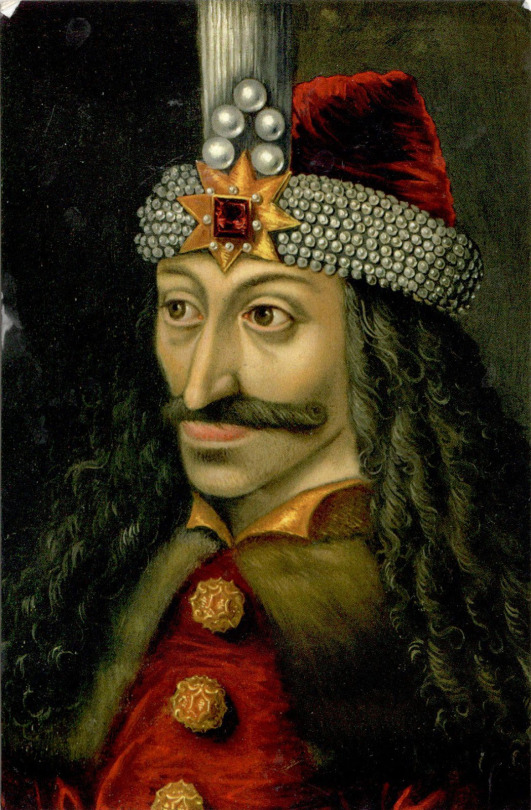
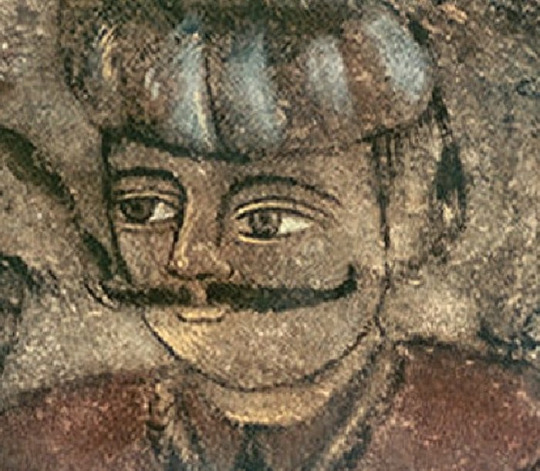
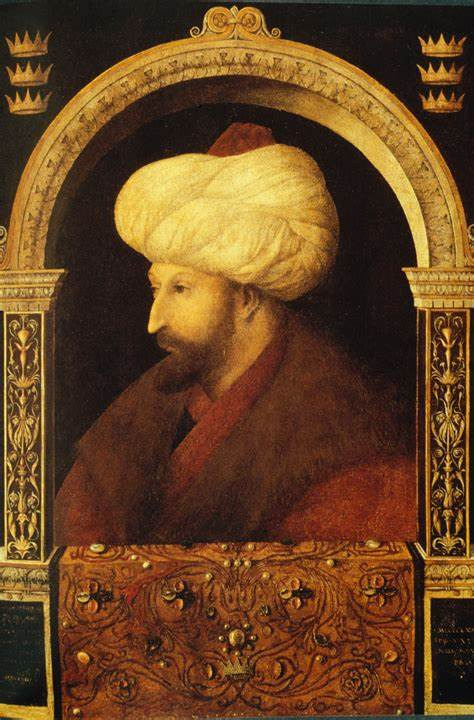
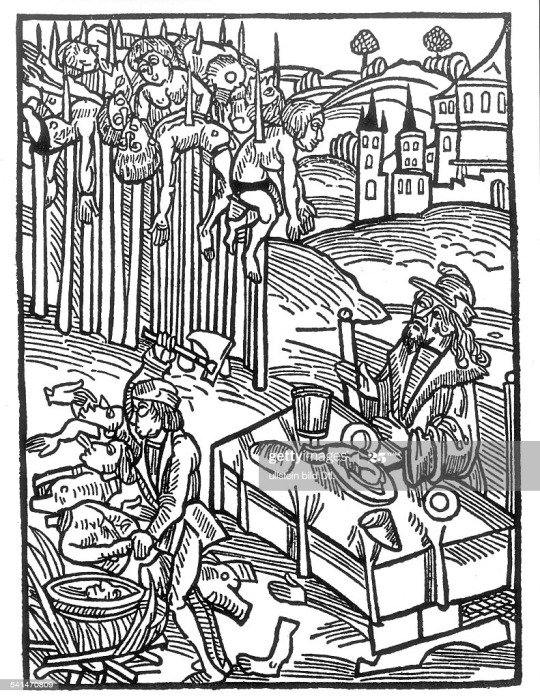
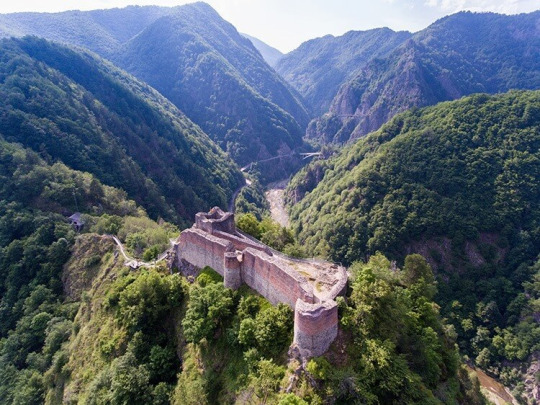
#history#military history#military tactics#capital punishment#15th century#romanian history#romania#vlad the impaler#vlad tepes#dracula#ottoman empire#wallachia#1400s#transylvania#vampire#bram stoker
11 notes
·
View notes
Text

— Blood on your hands, they say. As though it stops there; at your wrist, like a glove. As though you could do this, and there could be any part of you that wasn’t stained or dripping.
𝗯𝗮𝘀𝗶𝗰 𝗶𝗻𝗳𝗼𝗿𝗺𝗮𝘁𝗶𝗼𝗻
date of birth: November 8, 1431
place of birth: Sighișoara, Transylvania
family affiliation: the House of Drăculești (the House of Basarab)
𝗳𝗮𝗺𝗶𝗹𝘆
father: Vlad Dracul
mother: Doamna Vasilisa of Moldavia (the House of Mușat)
siblings:
Mircea Drăculea (brother)
Alexandra (sister)
Radu Drăculea (brother)
Mircea (half-brother)
Vlad Călugărul (half-brother)
mistress: Cătălina, daughter of Costea
wives:
Ilona Hunyadi (m. 1462-1472)
Jusztina Szilágyi de Horogszeg (m. 1475)
issue:
Mircea (* 1455)
Mihnea (* 1460)
Vlad (* 1464)
𝗽𝗵𝘆𝘀𝗶𝗰𝗮𝗹 𝗮𝗽𝗽𝗲𝗮𝗿𝗮𝗻𝗰𝗲
height:
body type:
complexity:
hair:
eyes:
features:
𝗽𝗲𝗿𝘀𝗼𝗻𝗮𝗹𝗶𝘁𝘆
positive traits:
negative traits:
strengths:
weaknesses:
likes:
dislikes:
intellect:
2 notes
·
View notes
Text
@zlomudry
Hail, Hunter of Hunters, Impaler-Prince of the Dead Woods, Vlad Dracula of the House of Basarab.
He kneels, slow, with reverent tongue, to the figure seated amidst the squirming stakes.
11 notes
·
View notes
Text
This is a little drabble I’ve been working on featuring my take on Trevor Belmont and would tie in with the AU verse I have with @huntercollective
The focus here is the return of the Belmonts to nobility.
Trevor ran a hand through his hair. Life in the capital of Wallachia was far more...serviceable to those looking to live in luxury, however it was something he cared not for. Sure he came from Nobility; the Belmont Family had been in God and King’s service since his ancestor Leon Belmont and it was his ancestor who first fought Dracula, Mathias Cronqvist. To this day, within the annals of Leon’s memoirs he spoke highly of the man who would become Dracula, even after his fall, which is why he was here today to speak not only to the King but the Cardinal who sat along side the King, Basarab the Third, also known to his enemies Laiota the Old. And of course the room was rounded out with members of the advisory council and members of the Clergy.
“What is this Heretic doing here?” One member of the Clergy demanded, causing a frown to grow on the Belmont’s face. He wasn’t the only one, as the King and the Cardinal, Dormand the Wise, also shared his annoyance.
“I came at the behest of the King and the Cardinal themselves. I am many things, dear member of the Clergy, but treasonous I am not. I am a member of Wallachia’s Nobility and a child of this country; to not come when bade by the King… why I might as well gut myself and spare him the trouble.” Trevor replied, his tone bordering hostile.
“Calm yourself, Young Belmont.” Basarab ordered though he shared Trevor’s ire. “Your loyalty and service to Wallachia is well noted though I wish to learn more about the fall of Count Dracula. It is said you were in the company of a Vampire and a Witch.”
“Sypha Belnade and Adrian Tepes.” Trevor answered truthfully. “Sypha is indeed a Witch, but witchcraft does not equate to evil, and Adrian, better known as Alucard, is Dracula’s son, birthed by a maiden who died needlessly and caused Dracula to rampage and terrorize our lands.”
“You freely admit that you consorted with beings of Evil?” The Clergyman who spoke up earlier questioned with a sneer. “You are truly are heretic.”
“And you’re truly a fool.” Dormand spoke for the first time. “The word of God does condemn Witchcraft and those who seek idols outside of our faith, it does not mean they are evil. I knew of the Nomadic Gypsy tribes yet did not seek to destroy them, for they do not disrupt the faithful with their falsehoods.”
“And yet zealots such as your friend here sought them out and murder them like animals. True, the word of God spoke of such things, but they also took pleasure and did what they want to the women, and tortured the men. They may have practiced witchcraft, but they were far more human and worthy of God’s love than the clergy in Gresit.” Trevor replied with a frown. “The Church was so defiled with the taint of evil that it did not protect Bishop from being brutally murdered by the demon hordes as they stormed the place. The Word of God is great, but ever his vengeance is more when innocent blood is drawn.”
Several officials and clergy members whispered among themselves as Dormand narrowed his eyes. “Is what you say is the truth young Trevor?”
“Dracula’s wrath was incurred when his human wife was burned at the stake for being a Witch for simply learning science as a way to help others. The study of Alchemy and science is forbidden by the church, as it were, though it does not make sense.”
“Why?” Basarab questioned.
“Those who know the word of God knows that he has had a hand in the creation of this world.” Trevor spoke. “Thus, he knows the answers that we already seek, the questions we ask. Science isn’t Witchcraft, it’s discovering the mysteries of the world God has left us. Medicine and other remedies could keep our people alive longer, but its considered Witchcraft by the church, by closed minded individuals. Its these same individuals that condemned House Belmont as heretics and nearly wiped my clan out to extinction. What would have happened if they had succeeded? Who would have stepped up to Dracula, who could wipe our armies normally, now fueled by rage and grief?”
The silence was palpable, and some members of the Clergy paled. What would have happened if the Belmonts did not exist? The Vampire Killer was considered a Holy Relic bound by blood to that line. It was a terrifying though to be sure.
“Your words ring true, Young Belmont.” Basarb spoke after awhile. “Which is why I wish to make amends for letting such tragedy happened.” Trevor did not say anything but merely narrowed his eyes. What was the King up to?
3 notes
·
View notes
Text
You know what would have made Castlevania Season 2 so much better...Grant Danasty
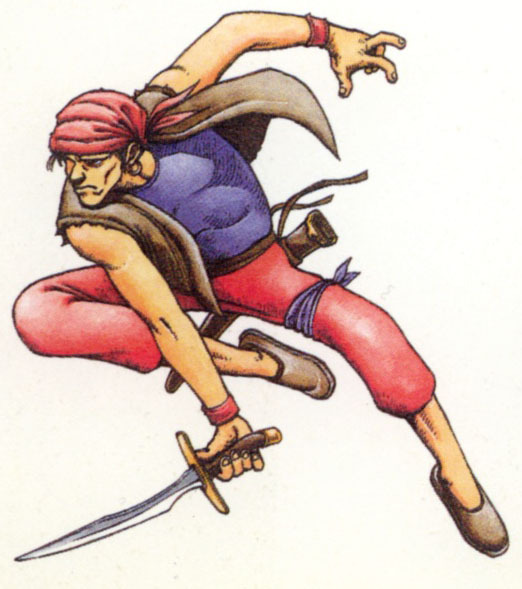
No here me out here people before you go running away.
See Grant is a unique character as many have said on this site and others. He’s the only one of the party that doesn’t have magic, doesn’t have some mystical whip and isn’t the undead.
He’s just a normal person, who was previously a pirate, who got caught up in this mess and was trying to save his people from the actions of Dracula. See he had given up being a pirate and was basically being a kind of robin hood type person at the time when Dracula started to stir up trouble. His family was killed in the attacks, so he has a direct bone to pick with Dracula.
By the way a great post by @rosebleue linked from a facebook post about why Grant is important to the story.
http://rosebleue.tumblr.com/post/161066524878/httpsfacebookcomgroups2204577638view-permali
So rather then let more people die for the stupidity of the church, he and a group of rebels were like “We can take him” and went after Dracula themselves.
However their actions cost them their lives in most cases, in others, like Grants he turned into a demon and was made to guard the Clock tower in the game.It’s here that he meets Trevor who beats him and then the spell cast on him comes to pass. Grant thanks Trevor and offers his services to help stop Dracula.
Grant’s skills are amazing. He can climb walls, parkour himself in all sorts of places, and his knife skills are amazing. Not only can he throw them long distances, but he also is extremely agile and can use a type of spell that allows time to slow down.
So why the heck would they not use this character in the series?
I really think it would have worked better if Grant had been there.
Grant could have been made also a PoC (black possibly to counter Isaac’s cruel nature), and as a former Pirate -who were known to be PoC and worked in a democratic group (Yeah pirates voted on things and made choices as groups) he would cancel out a lot of the stuff Isaac spews in this show.
On top of that since Walachia is his home, he wouldn’t be leaving and would have stayed to help out Alucard and fix up his home land.
You could have easily used Grant in a number of ways, not only being someone to banter off of Alucard and Trevor, but being also someone who sees where Sypha is coming from and maybe have some interesting moments with the characters.
With Trevor, you could point to the Danasty line having been some sort of nobles at some point, maybe political figures, and that he can get Trevor’s reluctance to deal with things. You could have also used him as a kind of voice of reason why Trevor needs to step up. Also, probably teasing him about Sypha, “Hey if you don’t want her, I would have no issue taking her.”
Also this little Gem could work too:
Grant's surname, "Danasty", might be a reference to Dănești, a noble house from Wallachia. The House of Dănești was one of the two main lineages of the Wallachian noble family House of Basarab. They were descended from Dan I of Wallachia. The other lineage of the Basarabs is the House of Drăculești, which Vlad III Drăculea belongs to. Grant's surname could also be a play on "Nadasdy", a noble Hungarian family that produced Ferenc Nádasdy. A "lesser impaler" than Vlad Ţepeş, Ferenc was the husband of Elizabeth Báthory and father of their children.
With Alucard it’s a question of his father and his actions. Maybe having Alucard point to what happened to his mother and possible pointing out how much he and Grant are alike. Grant’s father was killed by Dracula, Alucard’s mother was killed by people who were from Grant’s homeland. The drama there write’s itself and by the end the two are friendly enough that when Trevor offers him a ride with Sypha and him, he declines offering instead to help rebuild his home and watch over Alucard since he’s going to need a friend to help him out.
With Sypha it’s about magic and such. You can have Grant talk about not buying into magic and Sypha helping him out with that. Making him see a more spiritual side to himself. Also, given he is hinted to have feelings for her, you can add onto that by hinting, if you want, for him to be bi and have a thing for Trevor or Alucard as well. Given that he avoided the wedding of Sypha and Trevor according to Judgement, you can play a bit with that, maybe make it where he feels a bit sad that she chose Trevor, or that he’s not into guys. But keep them as the level headed ones of the group, the Dad of the quartet if you will.
If you wanted something interesting have him fight one of the Vampires and take them down, going “That was for my family.” You can also throw in his comments in regard to his family being taken from him the same way Dracula lost Lisa. As I said above Isaac as a counter to Grant would be interesting. You could have it be where he was a free person of color vs. Isaac who wasn’t and then get into some of that area if you really wanted to.
Even if you didn’t go that route with him, Grant should have been in this. He would have added a strong dynamic to the team and brought the reality of the situation to the group as a person who lives in the lad that they are fighting for. He’s human and knows how Hector feels and understands why Isaac can hate people as well.
He could have worked perfectly in this as a mirror for Trevor and Alucard and even Dracula to look into.
Why the hell was he not included again?
#netflix castlevania#castlevania the animation#castlevania iii: dracula's curse#castlevania#castlevania season 2#castlevania spoilers#cv spoilers#grant danasty#castlevania grant#trevor belmont#sypha belnades#alucard#castlevania alucard#adrian tepes#dracula#isaac laforeze#isaac#hector#castlevania hector
19 notes
·
View notes
Text
Events 11.9
694 – At the Seventeenth Council of Toledo, Egica, a king of the Visigoths of Hispania, accuses Jews of aiding Muslims, sentencing all Jews to slavery.
1277 – The Treaty of Aberconwy, a humiliating settlement forced on Llywelyn ap Gruffudd by King Edward I of England, brings a temporary end to the Welsh Wars.
1313 – Louis the Bavarian defeats his cousin Frederick I of Austria at the Battle of Gammelsdorf.
1330 – At the Battle of Posada, Basarab I of Wallachia defeats the Hungarian army of Charles I Robert.
1456 – Ulrich II, Count of Celje, last ruler of the County of Cilli, is assassinated in Belgrade.
1520 – More than 50 people are sentenced and executed in the Stockholm Bloodbath
1620 – Pilgrims aboard the Mayflower sight land at Cape Cod, Massachusetts.
1688 – Glorious Revolution: William of Orange captures Exeter.
1720 – The synagogue of Judah HeHasid is burned down by Arab creditors, leading to the expulsion of the Ashkenazim from Jerusalem.
1729 – Spain, France and Great Britain sign the Treaty of Seville.
1780 – American Revolutionary War: In the Battle of Fishdam Ford a force of British and Loyalist troops fail in a surprise attack against the South Carolina Patriot militia under Brigadier General Thomas Sumter.
1791 – Foundation of the Dublin Society of United Irishmen.
1799 – Napoleon Bonaparte leads the Coup of 18 Brumaire ending the Directory government, and becoming First Consul of the successor Consulate Government.
1851 – Kentucky marshals abduct abolitionist minister Calvin Fairbank from Jeffersonville, Indiana, and take him to Kentucky to stand trial for helping a slave escape.
1862 – American Civil War: Union General Ambrose Burnside assumes command of the Army of the Potomac, after George B. McClellan is removed.
1867 – Tokugawa shogunate hands power back to the Emperor of Japan, starting the Meiji Restoration.
1872 – The Great Boston Fire of 1872.
1881 – Mapuche rebels attack the fortified Chilean settlement of Temuco.
1887 – The United States receives rights to Pearl Harbor, Hawaii.
1906 – Theodore Roosevelt is the first sitting President of the United States to make an official trip outside the country. He did so to inspect progress on the Panama Canal.
1907 – The Cullinan Diamond is presented to King Edward VII on his birthday.
1913 – The Great Lakes Storm of 1913, the most destructive natural disaster ever to hit the lakes, reaches its greatest intensity after beginning two days earlier. The storm destroys 19 ships and kills more than 250 people.
1914 – SMS Emden is sunk by HMAS Sydney in the Battle of Cocos.
1918 – Kaiser Wilhelm II of Germany abdicates after the German Revolution, and Germany is proclaimed a Republic.
1923 – In Munich, police and government troops crush the Nazi Beer Hall Putsch.
1935 – The Congress of Industrial Organizations is founded in Atlantic City, New Jersey, by eight trade unions belonging to the American Federation of Labor.
1937 – Second Sino-Japanese War: The Chinese Army withdraws from the Battle of Shanghai.
1938 – The Nazi German diplomat Ernst vom Rath dies from gunshot wounds by Herschel Grynszpan, an act which the Nazis used as an excuse to instigate the 1938 national pogrom, also known as Kristallnacht.
1940 – Warsaw is awarded the Virtuti Militari.
1953 – Cambodia gains independence from France.
1960 – Robert McNamara is named president of Ford Motor Company, the first non-Ford to serve in that post. A month later, he resigned to join the administration of newly elected John F. Kennedy.
1963 – At Miike coal mine, Miike, Japan, an explosion kills 458, and hospitalises 839 with carbon monoxide poisoning.
1965 – Several U.S. states and parts of Canada are hit by a series of blackouts lasting up to 13 hours in the Northeast blackout of 1965.
1965 – A Catholic Worker Movement member, Roger Allen LaPorte, protesting against the Vietnam War, sets himself on fire in front of the United Nations building.
1967 – Apollo program: NASA launches the unmanned Apollo 4 test spacecraft atop the first Saturn V rocket from Cape Kennedy, Florida.
1970 – Vietnam War: The Supreme Court of the United States votes 6–3 against hearing a case to allow Massachusetts to enforce its law granting residents the right to refuse military service in an undeclared war.
1979 – Cold War: Nuclear false alarm: The NORAD computers and the Alternate National Military Command Center in Fort Ritchie, Maryland detected purported massive Soviet nuclear strike. After reviewing the raw data from satellites and checking the early-warning radars, the alert is cancelled.
1985 – Garry Kasparov, 22, of the Soviet Union becomes the youngest World Chess Champion by beating fellow Soviet Anatoly Karpov.
1989 – Cold War: Fall of the Berlin Wall: East Germany opens checkpoints in the Berlin Wall, allowing its citizens to travel to West Berlin.
1993 – Stari Most, the "old bridge" in the Bosnian city of Mostar, built in 1566, collapses after several days of bombing by Croat forces during the Croat–Bosniak War.
1994 – The chemical element darmstadtium is discovered.
1998 – A U.S. federal judge, in the largest civil settlement in American history, orders 37 U.S. brokerage houses to pay US$1.03 billion to cheated NASDAQ investors to compensate for price fixing.
1998 – Capital punishment in the United Kingdom, already abolished for murder, is completely abolished for all remaining capital offences.
1999 – TAESA Flight 725 crashes after takeoff from Uruapan International Airport in Uruapan, Michoacán, Mexico, killing all 18 people on board.
2000 – Uttarakhand officially becomes the 27th state of India, formed from thirteen districts of northwestern Uttar Pradesh.
2004 – Firefox 1.0 is released.
2005 – The Venus Express mission of the European Space Agency is launched from the Baikonur Cosmodrome in Kazakhstan.
2005 – Suicide bombers attack three hotels in Amman, Jordan, killing at least 60 people.
2007 – The German Bundestag passes the controversial data retention bill mandating storage of citizens' telecommunications traffic data for six months without probable cause.
2012 – A train carrying liquid fuel crashes and bursts into flames in northern Myanmar, killing 27 people and injuring 80 others.
2012 – At least 27 people are killed and dozens are wounded in conflicts between inmates and guards at Welikada prison in Colombo.
2019 – Kartarpur Corridor was started by India and Pakistan.
1 note
·
View note